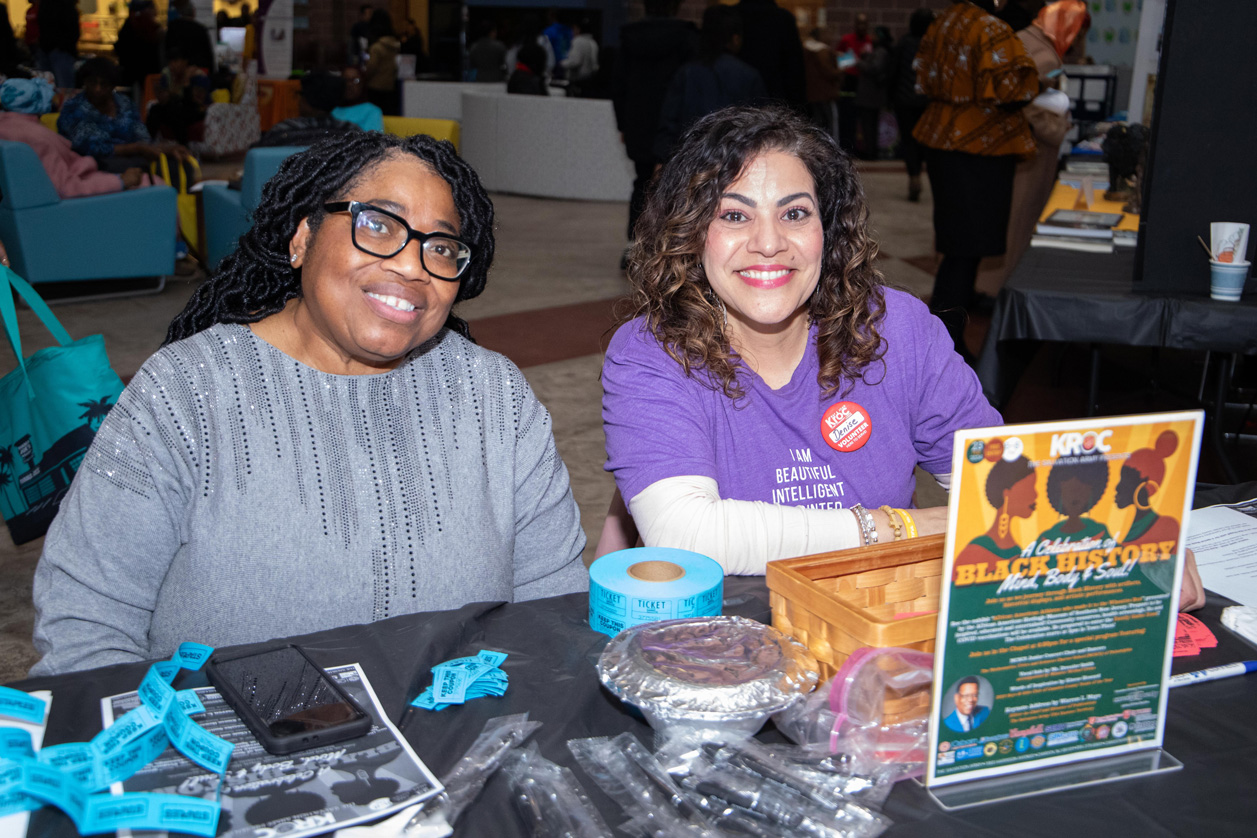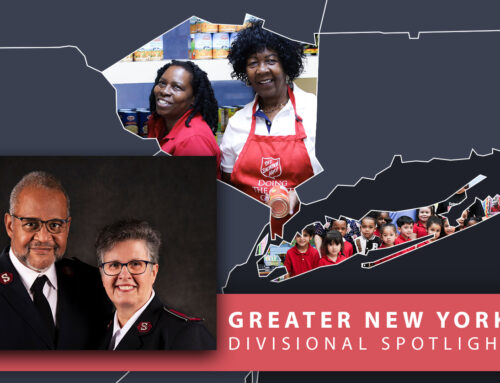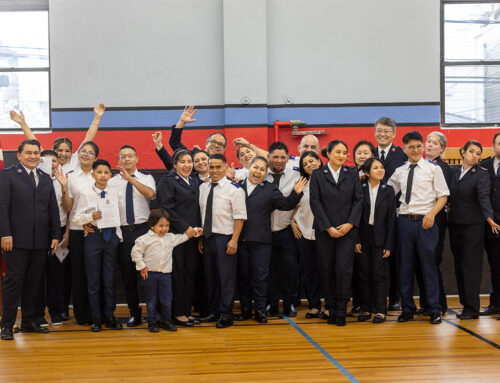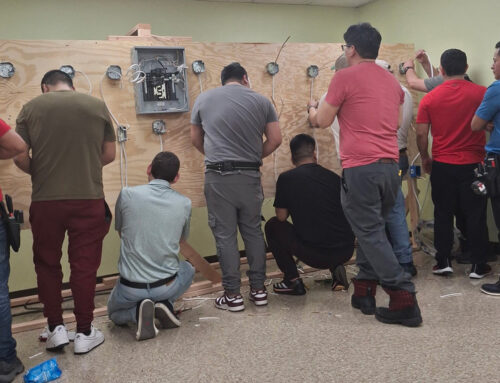
Celebrating Black Families at Camden Kroc
by Warren L. Maye
Fun and games, festive clothing, food, and exhibits filled The Salvation Army Ray & Joan Kroc Corps Community Center in Camden, N.J., to celebrate Black History Month on Friday, Feb. 23. Many men, women, and young people dressed casually, but some came in traditional West African attire. I was happy that I also wore a dashiki to the event, at which I’d been invited to keynote. In 2024, the Kroc Center is also celebrating 10 years of serving this historic community.
“Camden is the first city in the United States to build a suspension bridge!” said City Councilman Chris Collins. A Salvation Army advisory board member, Reverend Collins mentioned several other firsts for the city, then said, “Did you know that when Dr. Martin Luther King lived in Camden and attended seminary, his name was Michael King?”
Dawn M. Garlic, volunteer services manager at the Kroc Center and organizer of the event, “A Celebration of Black History: Mind, Body & Soul,” called it “a night for the entire family—an evening of Black history facts, trivia, historical displays, and artistic performances.” Full of contagious energy, she addressed every question that came her way from the crowd. “There will be information about community resources, physical and mental health education, as well as skin care. You will learn how to get your taxes done for free, and our friends at Campbell’s will offer special giveaways.”

An exhibit hall for all
Among the many exhibitors were the African American Heritage Museum of Southern New Jersey, the Rotary Club, CAMcare Health Corp., the Osborn Family Health Center, Rutgers University, Cooper Medical School of Rowan University, the Latin American Economic Development Association, First Tee Greater Philadelphia, and Millennium Skate World.
Also on hand were representatives of the Dr. James Still Historic Office Site and Education Center, which preserves the legacy of the “Black Doctor of the Pines,” and the Lawnside Historical Society/Peter Mott House, a station on the Underground Railroad that sheltered people fleeing from slavery.
The New Jersey Buffalo Soldiers Motorcycle Club was there to spotlight the contributions of Black men who rode horses across the plains for the U.S. Army beginning in the mid-19th century. George Berry—recently featured in SAconnects magazine’s Volunteer Spotlight—wore colorful motorcycle and cowboy gear and shared some fascinating history with people who gathered at his team’s table. “To this day, people are surprised to learn about the Buffalo Soldiers,” Berry told me.
In the Family Game Zone, parents and children played golf, basketball, and other games.

Worship in the Chapel
The family theme continued into the evening program, where Minister Michael Crews set a worshipful tone at the piano. Following an enthusiastic welcome by Kroc Center Administrators Majors Richard and Lolita Sanchez, the Junior Choir from the Mathematics, Civics and Sciences Charter School of Philadelphia (MCSCS) brought the audience to their feet with “Lift Every Voice and Sing,” often referred to as the Black national anthem.

Accompanied by Minister Crews, Ms. Dressler Smith of the Pennsylvania Academy of the Fine Arts offered a beautiful rendition of “My Lord, What a Morning (When the Stars Begin to Fall).” The spiritual was sung by 1,500 people in 1880 in Philadelphia at The Salvation Army’s inauguration in the United States.
Then, Garlic introduced me as the evening’s keynote speaker. Earlier, I had asked the Lord to guide me in what to say. As I approached the podium, He showed me the faces of men and women, young and old, and many children, in an array of choir robes and Kente cloth shawls and casual clothes. I’d decided to talk about the Beck family, the first family to serve in The Salvation Army as territorial evangelists.
Zach Moore, the Kroc Center’s multimedia specialist, had already projected the Becks’ family photo onto the screen: Alexander Beck with his wife and young daughter, Pearl, wearing their Salvation Army uniforms in 1889. The family struggled and then thrived in the aftermath of the Civil War.
Family reunions in the making
My focus on the Beck family inspired references to other Salvation Army families who have been ministry pioneers. On a deeper level, I talked about how African American families have fought to rebuild since the brutal days of slavery and painful separation on the auction block. “Those family reunions continue to this day,” I said, sharing an account from my own family. “So, when you see extended families wearing colorful T-shirts with their name emblazoned on the front and back, remember their reunion has been more than 100 years in the making.” Finally, I said, “Turn to your family members right now and say, ‘We are in this together!’”
To close out the program, the MCSCS Junior Choir sang in their strong voices: “Reach out and touch somebody’s hand. Make this world a better place if you can.”




